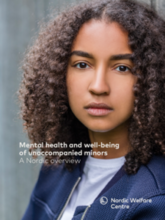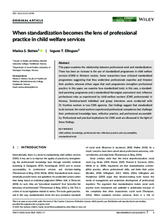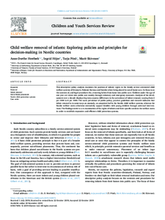Displaying 41 - 50 of 111
This analysis focuses on the case of Pedersen et al. v. Norway, where the European Court of Human Rights (ECtHR, Court) addressed the issues of adoption and post-adoption contact.
This report surveys different aspects of health of unaccompanied minors who have arrived in the Nordic region.
In this paper, the authors examine how standardized tools, in this case, a standardized parenting programme and a standardized Norwegian assessment tool, influence professional roles as experienced by child welfare workers (CWS professionals) in Norway.
The study examined school adjustment among 119 internationally adopted children in Norway.
This report from Save the Children Norway explores what child welfare institutions in Norway are doing to protect children in their care from the risk of online sexual offences.
This book brings together knowledge of how modern countries in Europe and the United States deal with the issue of errors and mistakes in child protection in a cross-national perspective.
The first aim of this study was to investigate foster children’s social-emotional functioning (externalizing, internalizing and total problem behavior) reported by female and male caregivers, as well as by teachers, at 8 years of age, as compared with a non-foster group. The second aim was to investigate the predictive power of internalizing and externalizing behavior from age 2 and 3 years.
The article is based on interviews with 22 children’s spokespersons in the Norwegian arrangement for indirect participation in care proceedings, and presents analyses of the spokespersons’ experiences of contradictions and dilemmas in their practices.
This descriptive policy analysis examines the position of infants’ rights in the family service orientated child welfare systems of Denmark, Finland, Norway and Sweden when being placed in out-of-home care.
Join this webinar to walk through the PROMISE Child Participation Tool and to discuss approaches and considerations for soliciting children’s views on their Barnahus experience.




